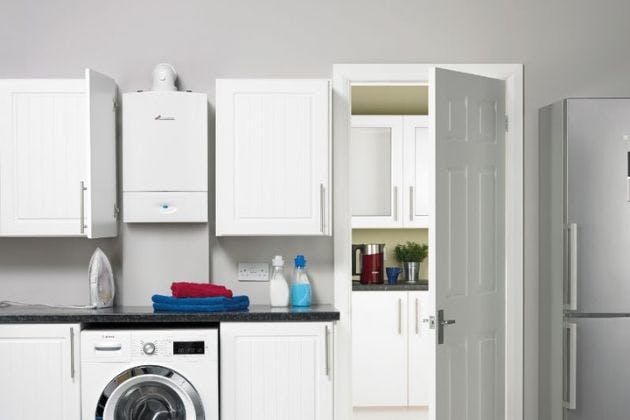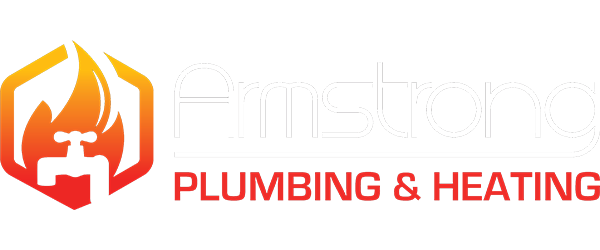Your level of comfort, the amount of energy your home uses, and the amount you spend on heating costs each month can all be considerably impacted by the boiler you decide to install in your property. Because there are many different kinds of boilers on the market, it is vital to be familiar with the advantages and disadvantages of each type before making a decision.
In this guide, we will discuss the many kinds of boilers, their advantages and disadvantages, as well as provide an overview of the various boiler brands that we work with. By doing so, we are able to provide insightful guidance that will assist you in selecting the boiler that is most suitable for your home. If you are in the area and are searching for a dependable boiler installer in York and the surrounding areas, fill out our online contact form and request a free quote.

The Indications That It Is Time to Replace Your Boiler
Before getting into the various kinds of boilers, it is necessary to notice the signals that indicate it is time to replace your current unit with a new one. Some frequent indicators include:
- The age of the boiler: The majority of boilers have a lifespan that ranges between 10 and 15 years. It is possible that your boiler is less efficient and more prone to frequent breakdowns if its age is approaching or has already reached this age range.
- Increased Energy Bills: t is possible that your boiler is no longer running as efficiently as it once did if you have observed a significant spike in your energy bills without any matching change in the amount of energy you use. Boilers have a natural tendency to become less efficient as they age, which results in increased energy usage.
- Frequent Repairs: If you find yourself calling for boiler repairs more often than not, it may be an indication that your boiler is nearing the end of its lifespan. While it's not unusual for a boiler to require maintenance once in a while, if it's happening more frequently than that, it could mean that the appliance is losing its reliability.
- Inconsistent Heating: Another indication that your boiler may need to be replaced is if the temperature in your home is inconsistent throughout. If you find that certain rooms or areas of your home are often colder than others, this could be an indication that your boiler is having trouble distributing heat uniformly throughout the home.
- Strange Noises: If your boiler is making sounds that are out of the ordinary, such as banging, whistling, or gurgling, this could be an indication that there are problems deeper down. These noises should not be ignored because they may signal a boiler that is malfunctioning and needs care.
The different types of boilers
With a variety of options available, understanding the different types of boilers is crucial in making an informed decision. By gaining insights into these types, you will be equipped with the knowledge necessary to choose the boiler that best suits your specific heating needs. Let's delve into the details of each type and guide you towards selecting the perfect boiler for your home.
Combi Boilers
Combi boilers, short for combination boilers, are a popular choice for many homeowners. Because they can supply both heating and hot water on demand, these boilers eliminate the requirement for a separate water storage tank in the building. They take up very little room and are therefore perfect for homes or apartments that are on the smaller side. When compared to other types of boilers, combi boilers often have lesser expenses associated with their initial purchase. On the other hand, they have a restricted flow rate for hot water, which may cause issues with many hot water outputs at the same time. In addition to this, they might not be appropriate for houses that have weak water pressure.
System Boilers
System boilers are created to fulfil the requirements of larger households in terms of heating and hot water production. They function by storing hot water in a cylinder, which guarantees a constant supply of hot water to several outlets at the same time without compromising the water pressure. System boilers are an excellent choice for residences that have a larger demand for hot water or more than one bathroom. Because they do not require a separate cold-water storage tank, they can be installed in homes that have a restricted amount of loft space. However, in comparison to combi boilers, the expenditures associated with installing a system boiler are typically more expensive.
Regular Boilers (also Known as Conventional Boilers)
Regular boilers, which are often referred to as conventional boilers, are typically located in older homes that make use of conventional heating systems. They are made up of a boiler unit, a cylinder that stores hot water, and a storage tank that holds cold water. The dwellings in which there is a high demand for hot water but low water pressure are good candidates for regular boilers. They are able to supply hot water to several outlets concurrently without lowering the water pressure in the system. However, conventional boilers necessitate an area that is big enough to accommodate both the cylinder that holds the hot water and the tank that holds the cold water. They also have greater initial costs since they require additional components. This is in addition to having higher overall expenses.
(More: What type of boiler is the most energy-efficient?)
(More: Tips for purchasing a new boiler)
(More: Different types of boilers to install)
The different Boiler Brands we work with

Viessmann is a well-known brand that is renowned for the energy-efficient and dependable boilers that it manufactures. They provide a diverse selection of boilers that come equipped with cutting-edge functions and sophisticated controls, giving homeowners the ability to improve their level of comfort and exercise greater command over their heating systems. Viessmann boilers are constructed to withstand the test of time, offering both durability and longevity. Homeowners are guaranteed to obtain the assistance they require because to the company's stellar customer care and after-sales service, both of which have made the brand famous.

Ideal is a respected brand that provides a broad selection of boilers that are designed to meet the needs of customers with a variety of property sizes and types of heating systems. The affordability and dependability of Ideal boilers have made them a household name. They offer heating solutions that are low in energy consumption and can assist homeowners in lowering their overall energy consumption as well as their monthly utility bills. The most efficient boilers produce little to no noise during operation, making for a relaxing atmosphere in the home. The company provides extensive warranties and maintains a robust network of qualified installers, both of which contribute to the streamlined and trouble-free nature of the installation procedure.

ATAG is a brand that is known for emphasising performance, dependability, and energy efficiency in their products. Their boilers are developed with cutting-edge technologies to deliver the highest possible heating performance while simultaneously lowering their carbon emissions. The ATAG boilers are recognised for their excellent levels of efficiency, which result in significant cost savings for households. The manufacturer provides extensive warranties and maintains a specialised technical support staff to rapidly respond to any questions or concerns that may be raised.
Contact our boiler Installer in York today!
Contact Armstrong Plumbing and Heating at 07834 168464 or 01904 373075, or send an email to ben@armstrongplumbingandheating.co.uk if you require the assistance of a qualified boiler installer in York or the areas immediately around the city. They are able to guide you through the process of selecting and installing the boiler that is best suited for your home, so assuring your comfort, the most efficient use of energy, and your peace of mind.
(More: Frequently Asked Questions about new boiler installations)


